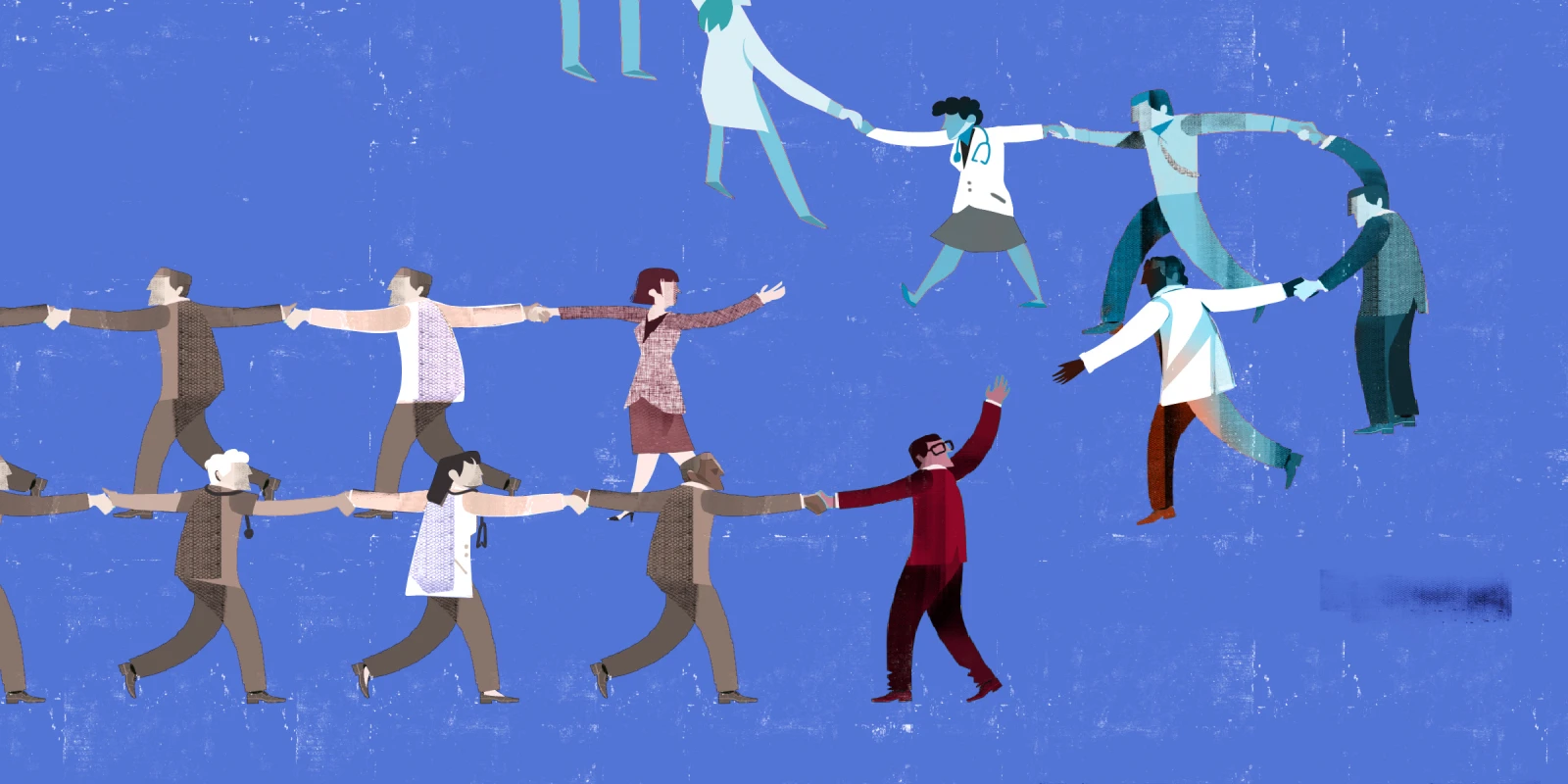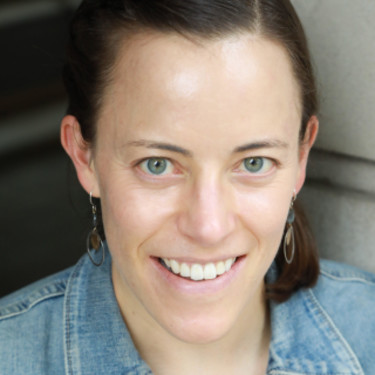It is hard to consume the news these days without coming across something about a crisis of caregiving. I have seen countless articles about the limited access to and inordinate costs of childcare, the poor conditions and staffing crisis in the elder care industry, increasing shortages of the direct care workforce for people with disabilities, nursing shortages, physician shortages, and so on. Many of these articles focus on the sandwich generation, those caring for aging parents and young children simultaneously. The crux of these articles seems to be that caregiving involves burdens and stresses.
As someone whose brother has Down syndrome, and as a physician who specializes in the care of adults with disabilities, I both agree with these articles and think they’re missing something crucial. As to the first point, I can say with certainty that we are indeed undergoing a care crisis in this country. My brother Erik’s recent experience is a case in point: Despite his relatively high care needs, he was able to live independently with agency support for over 10 years — something that gave him great pride. Sadly, a complex combination of factors recently led to the dissolution of a uniquely supported and independent living environment: industry changes after the pandemic, a case of neglect within the agency, and an ongoing staffing crisis. My brother’s experience of sudden loss of support and care is not unique — I frequently hear from my patients about both the challenges of finding quality care and the impacts of suboptimal care, up to and including neglect and abuse.
For those of us who are caregivers, either for parents/children and/or siblings with disabilities, our work is often done without a second thought — but also without the societal infrastructure that would truly support us. The stresses and costs of caring for and supporting other people are particularly salient for health care professionals and others who provide care as part of their jobs; for example, I can’t say I was refreshed recently when caring for my mother post-knee replacement and hospitalization after long days of patient care.
In addition to the glut of articles about our nation’s caregiving crisis, there is an overwhelming amount of reporting on the loneliness crisis. Each of these reports blame a different culprit, from social media to our country’s insistence upon single-family homes to the persistent decline in participation in organized religion. Largely missing from these analyses, however, is the connection between these two problems.
Certainly, caregiving is stressful and often draining, as discussed above — but it also can provide immense and deep connection. Talking only about the burdens of caregiving ignores the fact that life is a constant ebb and flow of giving and receiving care, often simultaneously. Even in the phases of life where we are providing the highest amount of hands-on care (raising young children, caring for aging parents, or supporting loved ones with disabilities), we are also constantly receiving support and care from others, including those who are traditionally thought of as solely receivers of care. That long weekend call with a long-distance friend, a neighbor providing last-minute babysitting, going to see our own physicians, a spouse running that errand you just couldn’t fit in, a smile or hug from your toddler, that desperately needed compliment from the local barista, and countless other forgotten acts, are all examples of the care web. As a society, what would happen if we recognized this complex network of support and care that is entrenched in our daily lives and that makes the world go round? What would happen if we realized that all of life is giving and receiving care, and that that is in fact what makes us human?
Certainly, a society like this would have different policies around caregiving and supporting professions, perhaps leading to these positions becoming some of the most valued. We might celebrate the accomplishments of teams and families more than we would individuals, and the ways in which we all keep each other’s worlds turning would no longer be an afterthought. We might have robust and seamless networks of care such that ensuring the stress of finding care for a child or family member who needs it would hardly exist at all. And in this care, we might find our way back to an integrated and meaningful community, lifting us out of the loneliness we are plagued with today.
Despite the fact that this care happens without formal recognition under our noses every day, we are far from a world where ensuring everyone is fully supported is what drives the structure of our society. However, acknowledging that the web of care is what keeps each of us going has the potential to fundamentally change our society and experience as humans. Far as we are from recognizing, standardizing, and financially backing this care, I continue to remind myself of and honor the webs of care in my own life, placing emphasis on what may otherwise seem mundane.
I hope that this article, my own addition to the canon, can start to shift the conversation a bit away from doom. Yes, we need more social support — but viewing caregiving as only burdensome is superficial. As a physician and community member, I provide and will continue to provide care for my family, friends, and patients in distinct ways, most of which will not win any accolades or awards but will keep me grounded, and human. Just because direct care is tiring and impossible to do 24/7/365 doesn’t also mean that it isn’t one of the most important and meaningful aspects of life.
What are your favorite ways to provide care for your community? Share in the comments.
Dr. Emily Johnson is a family medicine physician who specializes in the care of adults with intellectual and developmental disabilities. She enjoys cycling, power lifting, language learning, and goofing around with her toddler. Dr. Johnson is a 2024–2025 Doximity Op-Med Fellow.
Image by Getty Images





